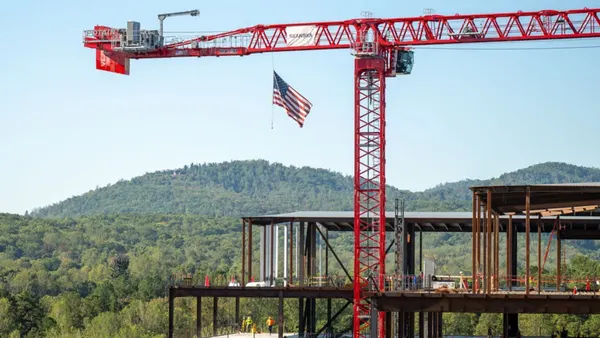It’s a well-documented story: the economy is finally starting to come back to life, and so is confidence in new businesses. While this should be good news, for the construction industry there is an underbelly: the pace of growth just isn’t matching up with the number of skilled workers.
But while the shortage of workers is undoubtedly an epidemic across the US, some areas have been hit harder than others. Here’s a rundown of exactly what areas are in dire need of skilled workers, and how they are planning to plug the gap.
Everything’s Bigger in Texas
Texas and Southwest Louisiana—which is often categorized with Southeast Texas geographically and culturally— are really feeling the heat from the economic uptick.
“More than 100 people a day are moving to Texas,” said Phil Thoden, President of Associated General Contractors Austin chapter. “They need homes. They need places to work.”
Indeed, the job growth in Texas is stronger than anywhere else in the nation—but someone has to build those new buildings.
“The Texas economy is simply outperforming the national economy, and we’re growing in every single demographic,” said Doug McMurry, vice-president of AGC’s San Antonio chapter.
One of the long-time big drivers to the Texas economy, the oil and gas industry, has been making things tough for hiring managers at construction companies.
“We’ve been competing with them for manpower, and it’s started to become a question of where people with that skillset are going to go,” Thoden said.
Impact of the Recession
During the Great Recession, many construction firms were forced to lay off workers. For example, the Denver metropolitan area laid off 39% of its construction workforce from 2007-2010.
Now in 2014, 93% of construction companies in the Denver metro area said in a survey "it will remain hard or get harder to find qualified construction professionals in the industry."
Denver and metro areas in Texas are also unique because their economies have bounced back relatively quickly, creating a classic case of supply vs. demand.
Not to mention, many baby boomers took the recession as a chance to retire, and the industry just hasn't been able to fill the gap the older generation left behind as the economy begins to wake up.
"One firm in the Denver area, the Gallegos Corporation, needs to hire at least 80 full time people right now. And that's just one firm," said Michael Gifford, President of AGC Colorado.
In recent years, the idea that high school students must go on to a four year university has become more widespread. The trend spiked even more when the recession hit, with the thought that a bachelor's degree was absolutely mandatory to stay afloat in the poor economy.
But Gifford begs to differ.
"Every time I go to a coffee shop, I'm always served by someone who is overeducated and underpaid," he said. "I always tell them, you can be making $160,000 a year in the trade professions. Since there is a shortage, you can negotiate your way to make a lot of money."
The Digital Frontier
Both Texas and Colorado have decided to take action against the shortage—and this means going on the offensive and getting on the web.
On Friday, Texas launched Texasconstructioncareers.com, a comprehensive directory of all trade jobs.
"We're providing a single place for anyone interested in trade careers can go, which we didn't have before," McMurry said.
"We really want to promote these jobs to young people and vets coming home looking for a fresh start," he said.
Colorado followed suit Wednesday with the rollout of BuildColorado.com, a website and mobile app with an identical mission.
"We are planning on putting out all the stops on social media, promoting it on billboards, all of that," Gifford said.
Thoden acknowledges that a change in how the millennial generation views trade careers will also make a great impact on how quickly the shortage can be plugged.
"I see on HGTV, for example, a lot of people who make trade work look cool and crafty, which is encouraging," he said. "There needs to be a cultural shift in how this younger generation views construction work."













